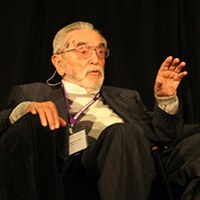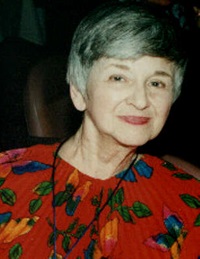EP85 Invited Address 03b - My Many Voices: Personal Perspectives on Family Therapy - Salvador Minuchin, MD; Zerka Moreno
- Average Rating:
- Not yet rated
- Topic Areas:
- Invited Addresses | Family Therapy | Psychotherapy | Supervision | Therapist Development | History of Psychotherapy
- Categories:
- Evolution of Psychotherapy | Evolution of Psychotherapy 1985 | Pioneers in Couples and Family Therapy
- Faculty:
- Salvador Minuchin, MD | Zerka Moreno
- Duration:
- 1 Hour 19 Minutes
- Format:
- Audio Only
- Original Program Date:
- Dec 12, 1985
- License:
- Never Expires.
Description
Description: This conversation brings together two influential voices reflecting on the development of family therapy. Salvador Minuchin traces its shift from holistic, family-focused care to an individual diagnostic model, and back again. He underscores the importance of adapting therapeutic strategies to the family’s structure and context. Zerka Moreno shares the power of action-oriented methods like psychodrama, highlighting how family members often relate more to imagined roles than to one another.
Moderated by Sharon Cottor, MSW.
Educational Objectives:
- To understand how family therapy evolved
- To list three future developments that are likely in the field of family therapy
*Sessions may be edited for content and to preserve confidentiality*
Credits
Handouts
| Timestamped Transcript (552.4 KB) | 10 Pages | Available after Purchase |
| Timestamped Transcript (519.1 KB) | 9 Pages | Available after Purchase |
Faculty

Salvador Minuchin, MD Related Seminars and Products
Salvador Minuchin, MD, developed Structural Family Therapy, which addresses problems within a family by charting the relationships between family members, or between subsets of family. He was Director of the Philadelphia Child Guidance Clinic. Although it was minimally staffed when he began, under his tutelage the Clinic grew to become one of the most modeled and respected child guidance facilities in the world. In 1981, Minuchin began his own family therapy center in New York. After his retirement in 1996, the center was renamed the Minuchin Center. Dr. Minuchin is the author of many notable books, including many classics. His latest is Mastering Family Therapy: Journeys of Growth and Transformation. In 2007, a survey of 2,600 practitioners named Minuchin as one of the ten most influential therapists of the past quarter-century.

Zerka Moreno Related Seminars and Products
Zerka Moreno, TEP, along with her late husband, J.L. Moreno, developed the theory and practice of psychodrama. Zerka has taught psychodrama worldwide for more than 30 years since J.L. Moreno's death and is recognized as a leader in further realizing his vision. Zerka T. Moreno is honorary president of the American Society of Psychodrama and Group Psychotherapy; president of the Moreno Workshops; and honorary member of the Board of Directors of the International Association of Group Psychotherapy.
Zerka is the author and co-editor of many books and articles in the field of group psychotherapy and internationally known as a teacher, therapist and lecturer.


